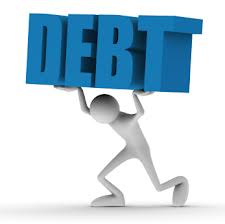 We hear about how bad student debt is, how it is out of control and how many students will never be able to repay their student loans. Well I am sorry, I do not have a lot of sympathy for many of them. They really should have a college grads financial advice course at university! Questions I have is whether they had a budget, did they work at a part time job, did they scrimp while going to college and how hard did they actually work at managing their money to minimize those student loans? Based on my own experience at college, I saw so many students out partying, going on expensive (for a student) vacation etc. While it is hard to not do these things, it can mean the difference between a large student loan and a smaller one.
We hear about how bad student debt is, how it is out of control and how many students will never be able to repay their student loans. Well I am sorry, I do not have a lot of sympathy for many of them. They really should have a college grads financial advice course at university! Questions I have is whether they had a budget, did they work at a part time job, did they scrimp while going to college and how hard did they actually work at managing their money to minimize those student loans? Based on my own experience at college, I saw so many students out partying, going on expensive (for a student) vacation etc. While it is hard to not do these things, it can mean the difference between a large student loan and a smaller one.
College Grads Financial Advice
There are other areas that students need to pay attention to. We listed a few of them here. Working on these can make the difference between working for years to repay your student loans to paying them off in a short period of time.
Value of a College Degree – how much will you earn when you graduate assuming you get a job in your field? This amount should guide you regarding how much to spend on your education. A low paying job will never support a large student loan let alone all of your other regular expenses.
Watch Cash Flow – all your life, but especially while going to school. It is so tempting to try to keep up with other well heeled students. But if you cannot afford it then don’t spend it.
Can you Afford That – every time you go to buy something always ask yourself if you can afford it and what will it mean in terms of cash available for the next several weeks as well as on your overall finances.
Understand how Interest is Calculated – interest rates are incredibly important, especially when they are high over a long time. Many students are surprised to learn that they pay more in interest costs than principle repayment each month. Review this in detail just as if you are cramming for an exam. In fact take a finance course to help you understand how money really works.


